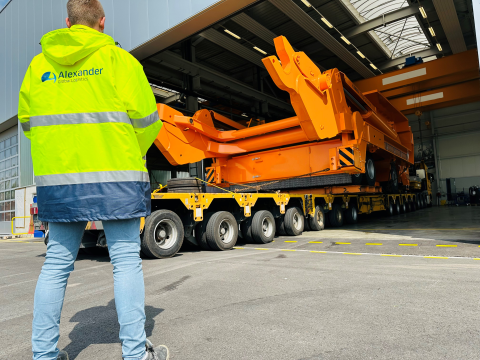
OOG cargo travels north across Germany beating permits and low water level obstacles
Photo: Alexander Global Logistics
Germany seems to be facing two major obstacles currently when it comes to OOG cargo transport, one being the permitting process and the other being low water levels. Having to transport two units, weighing 97 tons each, Alexander Global Logistics had a task on its hands.
Want to read more?
You have read all of your free premium articles for this month. Please become a subscriber to keep reading.
Subscribe now!
Take advantage of our exclusive offer to get full access to all premium content.




